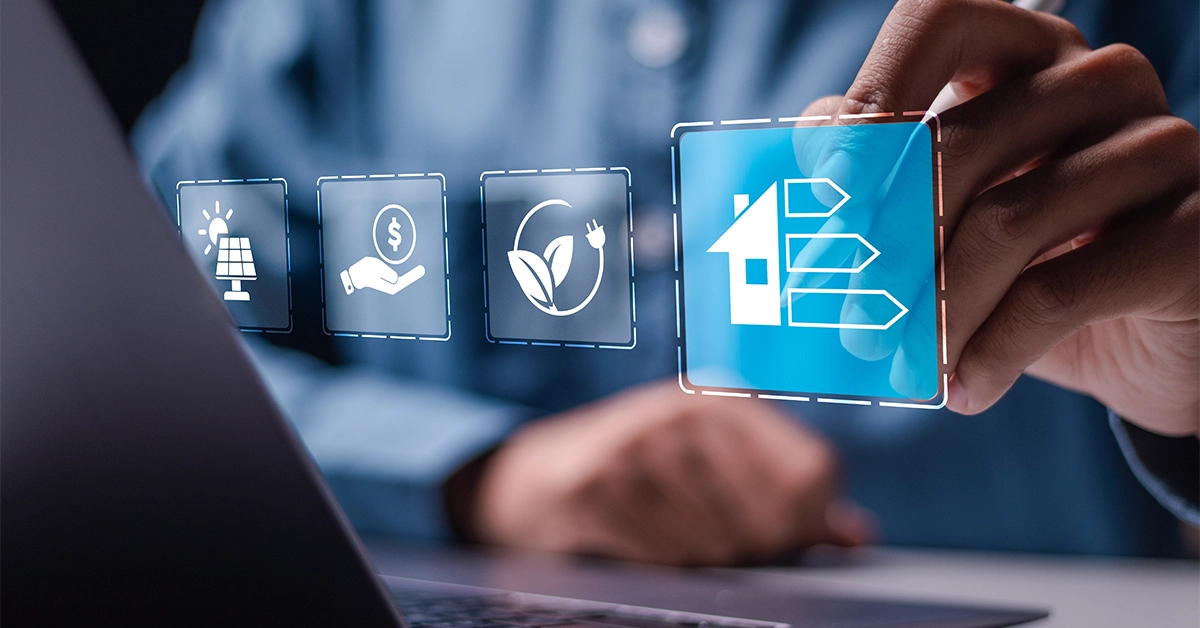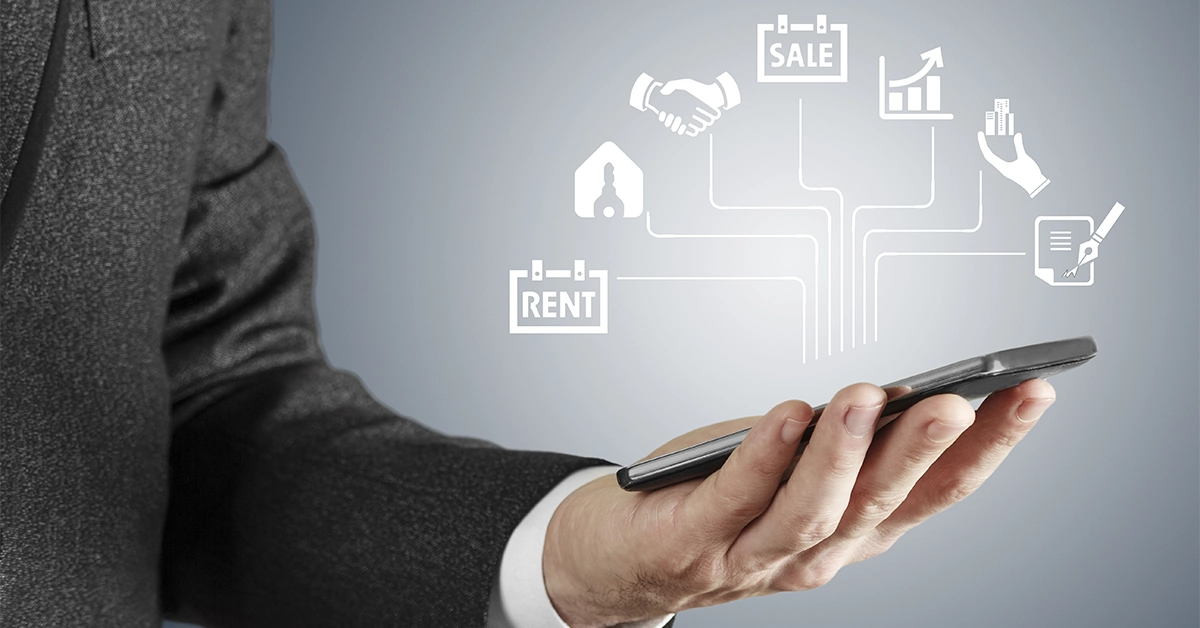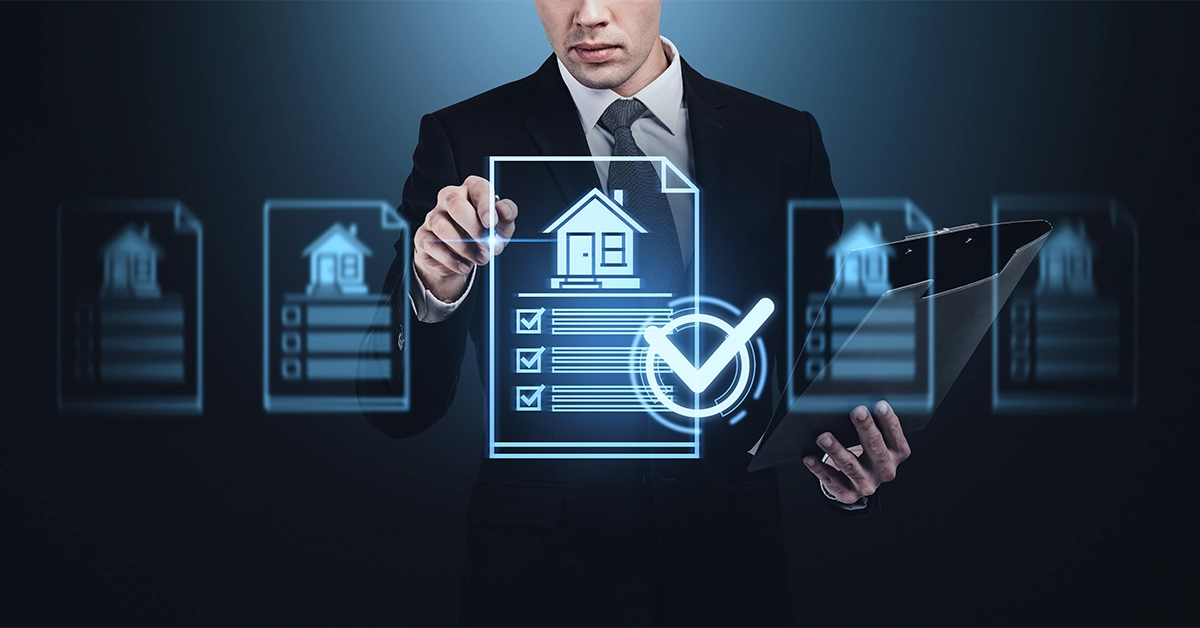The UAE is committed to becoming a global leader in innovation by integrating advanced technology across all sectors. Real estate smart contracts are a key part of this effort. These digital agreements are self-executing, unchangeable, and transparent.
Such contracts save time, reduce cost, and eliminate the need for banks and lawyers. While the benefits are clear, challenges such as legal recognition and standardisation still need to be addressed. So, let’s discuss all the advantages, problems, and the future it holds in the UAE.
- About Smart Contracts in Real Estate
- Benefits of Smart Contracts in Real Estate
- Challenges of Smart Contracts in Real Estate
- Future of Real Estate Investing with Smart Contracts
- FAQs
About Smart Contracts in Real Estate
Smart contracts are self-executing codes on the blockchain and are made to revolutionise the real estate sector in the UAE. Also, these automated contracts eliminate the need for third-party involvement, such as banks, brokers or lawyers.
With these smart contracts, the agreements between the concerned parties provide greater transparency, efficiency and security. Meanwhile, it enables new investment models like tokenised real estate.
Moreover, with the inclusion of smart contracts during property dealings, it is expected that both parties will get a streamlined agreement, as it covers the following aspects:
- Smart contracts can guarantee adherence to local real estate regulations, such as registering sales with the Dubai Land Department.
- These contracts’ technology enhances the efficiency and effectiveness of property managers, auditors, and legal teams’ back-office operations.
- Smart contracts can automate the distribution of rental income to token holders.
Benefits of Smart Contracts in Real Estate
Along with streamlined property transactions, automating ownership transfers, income distribution and legal compliance, the smart contracts also offer some other benefits, such as:
1. Improved Transparency and Security
Blockchain technology offers a transparent, immutable ownership and transaction history record, reducing fraud risk. Smart contracts, which are cryptographically secured, further enhance transparency and security by recording all transactions on the immutable blockchain ledger.

2. Efficient Processing
Smart contracts streamline real estate processes by eliminating intermediaries and manual processing, increasing efficiency and reducing transaction costs. These contracts also significantly reduce the time needed to complete real estate transactions.
3. Tokenisation
Smart contracts enable real estate tokenisation, enabling investors to buy fractional ownership of properties by creating tokens representing property portions.
This makes real estate investment more accessible to a broader range of global investors, providing equal rights to real estate investors in Dubai.
Challenges of Smart Contracts in Real Estate
While smart contracts in the UAE offer numerous advantages, they also face significant challenges. Here are some key problems that are yet to be solved:
1. Legal Challenges and Regulatory Uncertainty
One of the significant challenges to introducing smart contracts is that the RERA laws may not fully acknowledge blockchain-based agreements. Therefore, it makes it difficult to enforce legally binding contracts.
Moreover, the rapid advancement of blockchain technology in real estate often outpaces regulatory frameworks, resulting in unclear guidelines.

2. Lack of Standardisation
The vast variation in real estate regulations across jurisdictions poses a significant challenge in developing standardised smart contracts across different regions. The absence of standardised smart contract platforms and protocols can hinder the seamless integration of existing real estate systems.
3. Technical Challenges
Smart contracts in real estate can be challenging to develop and deploy due to their specialised programming skills. Not only that, but it is also vulnerable to bugs and exploits and compatibility issues with legacy systems and databases.
Meanwhile, existing blockchain networks may struggle to handle the high volume of transactions and data. The inability to easily modify smart contracts post-deployment can also pose issues in real estate, making it a technical challenge.

4. Adoption and Industrial Challenges
Another prominent challenge in adopting smart contracts is that real estate professionals may not fully understand their benefits. On the other hand, stakeholders may be hesitant due to a lack of understanding or concerns about the technology.
Moreover, the high cost of developing and implementing smart contracts may discourage some businesses.
5. Privacy Concerns
Although blockchain technology offers transparency, it raises privacy concerns as it may expose sensitive property and owner data. Therefore, many businesses are sceptical about adopting smart contracts.
Future of Real Estate Investment With Smart Contracts
Smart contracts are reshaping the UAE real estate landscape, making it more efficient, transparent and accessible to investors. Many global investors see blockchain technology as a potential game-changer, automating and securing transactions.
Additionally, Dubai aims to become a global hub for blockchain-powered real estate, with initiatives like the Real Estate Tokenisation Sandbox. This enables companies to experiment with blockchain-based solutions, following the Dubai Blockchain Strategy.

FAQs
Smart contracts on blockchain automate real estate by coding property agreement terms, eliminating intermediaries, speeding up transactions, and increasing transparency.
Smart contracts, stored on a blockchain, automate the execution of digital agreements when specific conditions are met. Some of the basic characteristics of the smart contacts are:
-Self-executing (contract code is executed automatically upon predefined conditions).
-Digital Agreement (represents digital agreements stored on blockchain).
-Immutability (code cannot be changed, ensuring agreement integrity).
-Transparency (blockchain records all transactions and contract execution).
-Decentralisation (operates on the decentralised network, reducing reliance on central authorities).
-Automated Execution (reduces delays and errors)
Real estate smart contracts are a remarkable initiative by the UAE government. They are digital agreements specially coded using blockchain technology. Following this, the country has introduced digitisation and tokenisation in the sector, enhancing the efficiency and eliminating the need for a third party.
However, real estate deals often involve complex terms and multiple stakeholders, making it challenging to create a smart contract. Otherwise, they can simplify investing in Dubai real estate and shape the future of property transactions in the UAE.